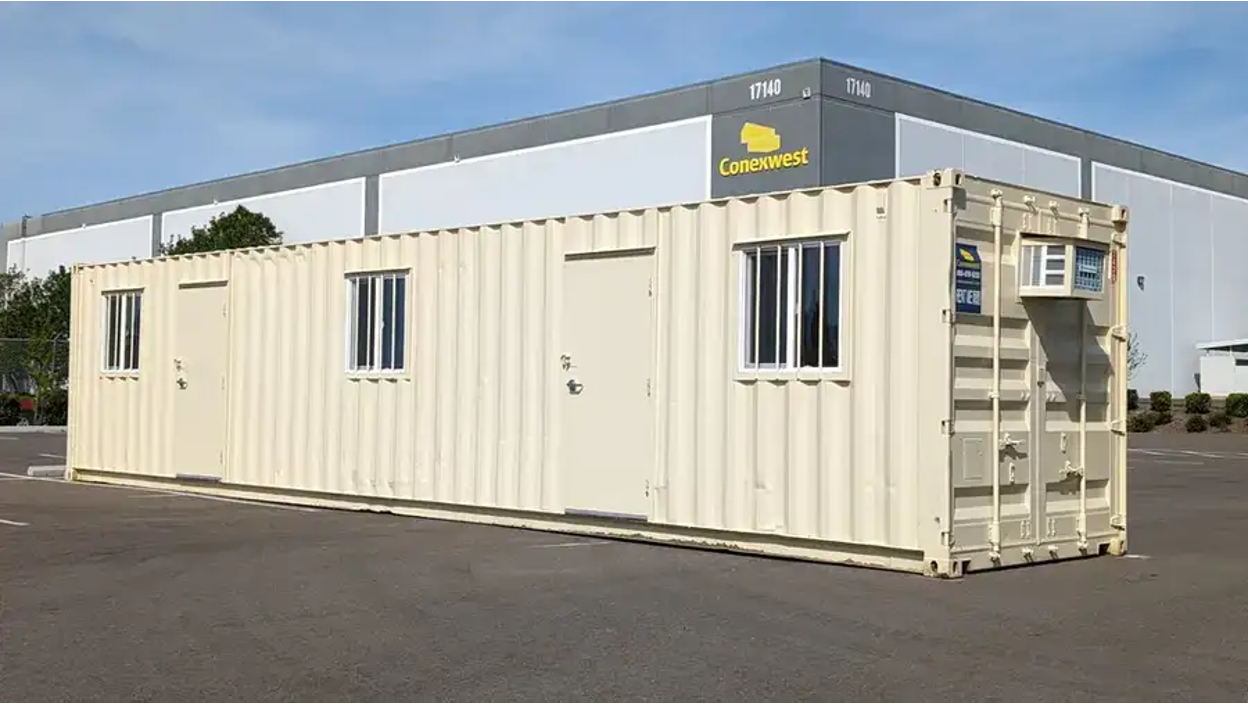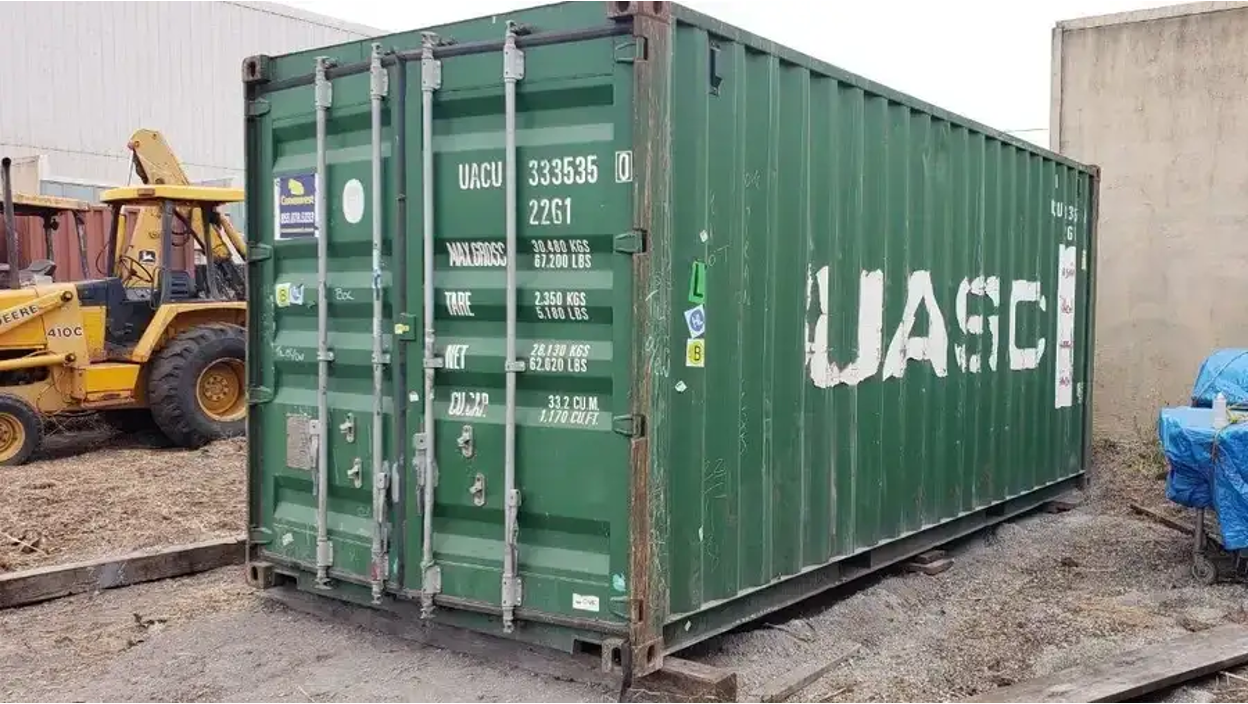North Carolina Shipping Container Zoning Laws, Permits & Building Code Requirements
Get a quoteNorth Carolina Shipping Container Zoning Law, Permit & Building Code Guide
Key Takeaways
- Zoning laws in North Carolina vary significantly by locality, so always consult with local planning departments.
- Permits are necessary for using shipping containers, and the process includes several steps, such as pre-application requirements and inspections.
- Building codes maintain the safety and structural integrity of shipping container structures.
- Conexwest provides a range of container options and customization services to meet diverse needs, with nationwide availability and support.
Shipping Container Zoning Laws, Permits, & Building Code Requirements In North Carolina
Zoning Laws
Zoning laws dictate how land can be used and what types of structures can be built in specific areas. In North Carolina, these laws can vary significantly by municipality but generally include:
- Land Use Designation: Areas are classified as residential, commercial, or industrial. They might be permitted for storage in commercial zones but not for residential use unless specifically allowed.
- Setback Requirements: Containers must often adhere to setback regulations, which determine how far structures must be from property lines or roads. This is for safety and aesthetic uniformity.
- Screening Requirements: Many municipalities require that shipping containers be screened from view from public streets, often using landscaping or fencing.
Building Codes
Building codes set the standards for construction for safety and structural integrity. In North Carolina, the following codes are commonly referenced:
- International Residential Code (IRC): This applies to residential structures, including shipping container homes.
- International Building Code (IBC): This governs commercial structures and other non-residential uses of shipping containers.
Containers used as permanent residences must comply with these codes, which cover aspects such as structural integrity, insulation, plumbing, and electrical systems.
Permits
Before placing a shipping container on a property, obtaining the appropriate permits is important:
- Building Permits: Required for any permanent structure. This includes modifications to the shipping container for residential use.
- Temporary Use Permits: If the container is intended for short-term use (e.g., construction storage), this permit may suffice.
- Zoning Permits: Many municipalities require a zoning permit before any land use changes or construction begins.
Here are examples of shipping container regulations in various municipalities of North Carolina.
1. Moore County
Moore County's regulations state that no land shall be used or occupied without a zoning permit. However, they exempt certain small accessory buildings (less than 12 feet) from requiring a permit if they meet setback requirements. Shipping containers are treated similarly to portable storage units under these guidelines.
2. Wilmington
In Wilmington, specific regulations apply to permanent shipping containers:
- Containers are allowed only for storage purposes and cannot serve as principal buildings.
- A maximum of one container is permitted on lots of one acre or less; additional containers may be allowed on larger lots.
- Containers must not exceed 40 feet in length and must be located on the rear half of the lot, adhering to all building setback requirements.
Conexwest, a leader in shipping and storage solutions based in Northern California, offers new, used, and refurbished containers from 10ft to 45ft, with fast delivery within 3–7 days and container fabrication options like adding shelves and locks. We serve over 10,000 customers nationwide, including prestigious clients like the U.S. Navy and Google. As an ISO 9001 and AWS-certified company, we ensure top quality and competitive pricing. |
Tips For Complying With North Carolina’s Regulations

Regardless of your purpose or timeline for using shipping containers, you must visit your local authority first.
- Prepare a Solid Foundation: Place the container on a stable surface such as concrete or asphalt to prevent shifting and settling over time.
- Screen from View: Use landscaping or fencing to screen the container from public view, as many municipalities require this for aesthetic reasons.
- Limit Container Stacking: Avoid stacking containers unless specifically permitted, as most regulations prohibit this practice for safety reasons.
- Check Size Restrictions: Adhere to size limitations set by local ordinances, which may restrict the length and height of containers.
- Maintain Structural Integrity: Regularly inspect the container for damage or corrosion and check if it meets safety standards, including any necessary modifications for electrical or plumbing systems.
- Plan for Utilities: If using the container as a living space or commercial unit, plan for utility connections (electricity, water, sewage) and obtain separate permits for these installations.
- Stay Informed on HOA Rules: If your property is within the jurisdiction of a HOA, check their rules regarding shipping containers, as they may have additional restrictions.
- Document Everything: Keep records of all permits, inspections, and communications with local authorities to maintain compliance and facilitate future inspections or modifications.
- Consult Professionals: Consider working with Conexwest’s professionals who are familiar with local regulations to get assistance with the planning and permitting process.
Choose Conexwest For Your Shipping Container Needs

Conexwest is your one-stop solution for all your shipping container needs.
Choosing Conexwest means getting quality service, reliability, and comprehensive support. Here’s why we stand out in the industry:
1. Extensive Product Selection
We provide a wide range of shipping containers, including standard, insulated, refrigerated, freezer, and office containers, available in various sizes from 10 to 45 feet.
2. Customization Options
With us, you can enhance your container with features such as windows, HVAC systems, electrical installations, and specialized doors. Our dedicated fabrication teams are skilled in transforming containers into functional spaces like mobile offices, pop-up shops, or residences.
3. Quality Assurance
Our containers are built to withstand harsh conditions and are designed for durability and security. Thus, we provide a ten-year warranty on new ISO shipping containers and a five-year warranty on used cargo-worthy containers. This commitment to quality means you can trust that your investment is protected.
4. Expert Guidance on Compliance
Our team is knowledgeable about local zoning laws, building codes, and permit requirements of North Carolina. Thus, we will guide you through them so you can comply with them easily and avoid legal issues.
5. Customer-Centric Approach
Customer satisfaction is our top priority. We believe in transparent pricing and clear communication throughout the purchasing process. Our team is always ready to answer your questions and provide support whenever needed.
6. Proven Track Record
Since our inception, we have served over 10,000 customers nationwide, ranging from individual homeowners to Fortune 100 companies. This extensive experience showcases our ability to meet diverse needs effectively.
Frequently Asked Questions (FAQs)
- Are shipping containers allowed on my property in North Carolina?
Yes, shipping containers are generally allowed on private property in North Carolina, but you must comply with local zoning laws and building codes. Each municipality has its own regulations regarding their use.
- Can I use a shipping container as a permanent residence?
Yes, you can use shipping containers as permanent residences in North Carolina, but they must meet local building codes and zoning regulations. This includes compliance with the IRC for safety and structural integrity.
- Can I stack shipping containers?
Generally, stacking shipping containers in North Carolina is not permitted under most local regulations due to safety concerns. Always check with your local authority for specific guidelines.
- What happens if I don’t comply with local regulations in North Carolina?
Failure to comply with zoning laws and building codes can result in fines, legal action, and potential removal of the container from your property.
- Are Conexwest containers weatherproof?
Yes, our containers are constructed from high-quality corten steel, making them highly durable and weather-resistant. They are designed to withstand harsh environmental conditions like strong winds and heavy rain.
